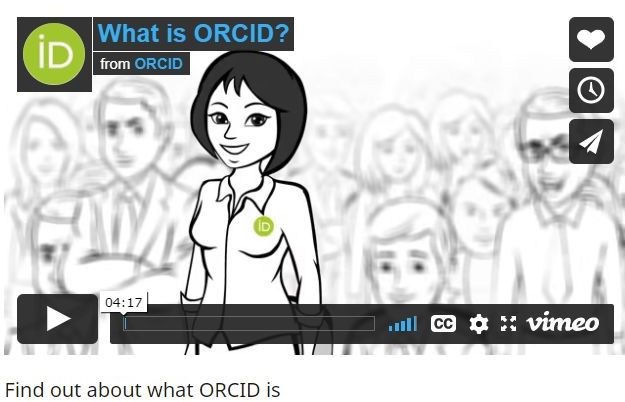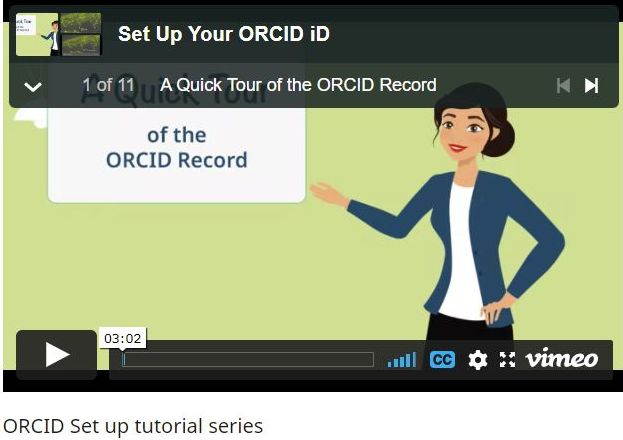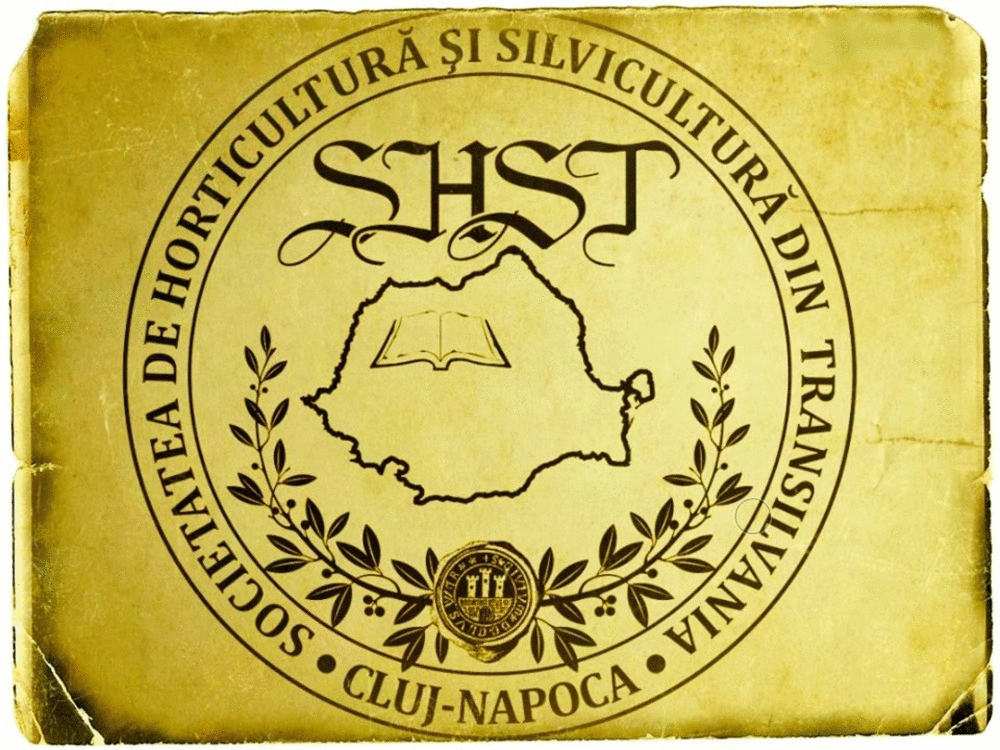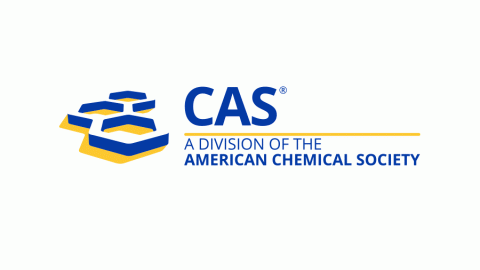Procedures
Before starting - information
Manuscript submission requirements
Manuscripts are sent to the journal Notulae Scientia Biologicae using exclusively the electronic platform. Submissions of manuscripts or correspondence by e-mails are not accepted.
In the process of uploading the manuscript on the electronic journal platform, the authors must complete the metadata (boxes that are completed on the journal platform, once the manuscript has been uploaded) and upload three documents (1. Manuscript; 2. Cover letter. 3. Author Statement; all of these are presented below and can be downloaded as Word in order to be used).
Before sending the manuscript to Notulae Scientia Biologicae, it is mandatory that the authors verify the following first conditions:
- The manuscript must be original. It not have been previously published (except in the form of an abstract or as part of a published lecture, review or thesis) or it not have been sent simultaneously for consideration in another journal.
- All authors had substantial contributions to the work (please revise the criteria for authorship on the ICMJE page) and they agree to its publication. They are authorized by their co-authors to enter into these arrangements and they secure the right to reproduce any material that has already been published or copyrighted elsewhere.
- The manuscript has been prepared in accordance with the editorial guidelines (Word file) and in addition to the manuscript, there are ready for upload on the e-platform the Author's Statement and Cover letter (as are presented in instructions for authors).
- Norms and principles of ethics presented in the section 'Publication Ethics' are observed.
As part of the submission process, authors are required to check off their submission's compliance with all of the imposed items (Submission Preparation Checklist), and submissions may be returned to authors that do not adhere to these guidelines.
To make a submission, the authors are invited to use:
- Login (those who already have an account on the site)
- Register (those who do not have an account on the site)
The author assigned as the corresponding has the responsibility to ensure that all data in the manuscript, including the ethic and scientific conduct of the research, metadata information, the authors and their affiliations, and the individual contributions to the study and the Acknowledgements section are accurate and complete. The corresponding author or the author who makes the submission has the obligation to ensure that the manuscript and all metadata are correct.
Copyright and Licensing
The papers published in Notulae Scientia Biologicae journal are licensed and distributed under the terms and conditions of the Creative Commons BY-NC 4.0 international license (https://creativecommons.org/licenses/by-nc/4.0/), which provides:
- Full and free access to the paper for the academic and scientific community.
- Possibility to reuse or reproduce the paper by properly quoting the original published version.
- Maximum exposure and capitalization of the work, while ensuring proper credit to the author(s).
Information and principles stipulated by CC BY-NC 4.0 License can be found on the web page:
- https://creativecommons.org/licenses/by/4.0/ (basic information);
- https://creativecommons.org/licenses/by/4.0/legalcode (legal text).
© SMTCT - The manuscripts published in Notulae Scientia Biologicae journal are licensed by the Society of Land Measurements and Cadastre from Transylvania (SMTCT).
Open access policy
Notulae Scientia Biologicae journal provides open and immediate access to its content with the aim of supporting a greater global exchange of knowledge and making research available to the public without cost. After the acceptance of an article, the authors maintain the rights over their contribution and authorize the journal (Notulae Scientia Biologicae) and publisher (Society of Land Measurements and Cadastre from Transylvania - SMTCT), in a non-exclusive way, to correct, edit, publish and distribute the manuscript, as well as store it in different repositories and other online digital platforms.
Manuscripts submitted for publication must be original. They must not contain even parts, fragments of text or images from other sources. The permission to reproduce any published data is mandatory for all material that either does not fall into the public domain or for which copyright permission does not belong to the author(s) of the submitted paper. Consequently, it is essential for authors to understand that they cannot publish materials from other publications without permission. As a result, if any, before submitting the paper for publication, the author(s) are strongly encouraged to already own all required permissions. If in any doubt about the copyright, apply for permission, respectively request the reproducing permission from the copyright holder.
For the published materials, CC BY-NC 4.0 license prohibits commercial use and allows the generation of derivative works provided that the original source is cited. In addition, the distribution of the material is encouraged by SMTCT with the condition that the authors and the source (Notulae Scientia Biologicae) are mentioned.
Publishing Process
All publishing procedures, represented by the submission of manuscripts, peer review and editorial processes are facilitated through the online editorial system provided by OJS (https://pkp.sfu.ca/ojs/). This includes also the correspondence systems among editor-in-chief, editors and sections editors, reviewers, and authors, as well as the complete set of email notifications.
The submitted manuscripts are subject to a rigorous peer-review process, in which each paper is refereed by at least two international reviewers, who are experts in the scientific topic of the paper.
In the peer-review process, the reviewers are invited to analyse in particular the relevance, soundness, significance, originality, readability and language of the manuscript. The possible decisions include:
- 1) Accept;
- 2) Minor revisions;
- 2) Major revisions;
- 3) Invite re-submission for a new review after major revisions;
- 5) Reject.
The ultimate responsibility for editorial decisions lies with the assigned editor and the editors-in-chief. The appeals of the authors should be directed to the editors-in-chief, who may decide to seek advice from the assigned editors and reviewers.
Except for the value and scientific significance, the manuscript acceptance is conditioned by such legal requirements as shall then be in force regarding libel, copyright infringement and plagiarism, but also the compliance with ethical norms and the rigours of scientific research.
Roles and responsibilities
Responsibilities of Editors-in-Chief, Section Editors and Editors
- Editors-in-chief coordinates the entire publishing process and ensures the proper functionality of all compartments of the journal and the quality of publications.
- Editors-in-chief, section editors and editors ensure the smooth running of the editorial processes and assume the main responsibility for the scientific quality of the published manuscripts.
- They ensure that the acceptance and publication of manuscripts are based on their importance, originality, clarity and relevance. In addition, the manuscripts are in line with the scope of the journal.
- Guarantee the quality of the manuscripts and the integrity of the academic record.
- Verify and ensure that the manuscripts are in conformity with international standards and ethical guidelines of research.
- Choose suitable reviewers and ensure correspondence with them during the peer review process. Preserve the anonymity of reviewers, unless they later decide to disclose their identities.
- The editors are invited to focus on the scientific quality of the manuscripts, as well as on the general style, which should correspond to the good practices in academic publishing.
- Editors may analyse the manuscripts in addition to reviewers, in order to assist reliability of the peer review process between reviewers and authors. They should not contribute to linguistic editing or copyediting of manuscripts, but if they have availability, they can contribute to improving the work.
- When they notice that there are deviations or suspicions either of a scientific nature or from clear and concise academic writing, they must act to avoid the publication of scientifically or literary inappropriate manuscripts. Any problems are discussed with the editors-in-chief and then, if necessary, at the level of the editorial board, in order to find a correct solution.
- Ensure that the needs of authors and readers are always taken into account in the process of improving manuscripts. Appropriate measures are taken to accept only adequate manuscripts.
- Editors must avoid any conflict of interest between authors, reviewers, and board members.
- Editors should act if they suspect misconduct and make all reasonable attempts to obtain a resolution to the problem.
Responsibilities of Reviewers
- For each manuscript, are invited reviewers to analyze it and send their opinion and reports. The reviewers must be specialists in the field of the manuscript, with the title of doctor and with professional and scientific recognition in the field.
- A quick review process is desired, to get and communicate the decision of the authors as soon as possible, and do not block their work for too long.
- The manuscripts will be reviewed by two or three experts, who are asked to declare any conflicts of interest. Reviewers should not review manuscripts in which they have conflicts of interest resulting from competitive, collaborative, or other relationships or connections with any of the authors, companies, or institutions connected to the papers.
- Reviewers are invited to check whether the manuscript is scientifically sound and coherent, how interesting it is and whether the quality of the writing is acceptable.
- Reviewers are also asked to indicate the articles they find particularly interesting or significant. These articles can be given more prominence and can even be given priority for online publication.
- Reviewers are asked to be polite and constructive in their reports. Reports that may be insulting or uninformative will be rescinded.
- Reviewers are asked to start their report with a very brief summary of the reviewed manuscript. This will help the editors and authors see if the reviewer correctly understood the subject of the manuscript or whether a report might be based on some misunderstandings.
- Reviewers must focus on the scientific quality of the manuscript, but also on the overall style of work, which should correspond to the good practices of academic writing. If a manuscript requires linguistic edits, reviewers should inform both authors and editor in their report.
- In cases of strong disagreement between the reviews or between the authors and reviewers, the editors can judge these according to their expertise or seek advice from the editors-in-chief or a member (eventually, well specialized in the subject) of the editorial board.
- During a second review round, the reviewer may be asked by the editor to evaluate the revised version of the manuscript with regards to the reviewer’s recommendations submitted during the first review round.
- Other duties of reviewers:
- Keep all information regarding papers confidential and treat them as privileged information.
- Express the opinions clearly and scientifically, with supporting arguments and in a polite manner.
- Identify possible relevant published work that has not been cited by the authors, but they can be of real importance for supporting the research and hypothesis assumed by the authors.
- Call to the editors' attention if there were identified any substantial similarity or overlap between the manuscript under consideration and any other published paper of which they have personal knowledge.
- Reviewers are asked to comment on the originality, structure and results of the manuscript, but also the relevance of the presented research. They can use one or more working way of four working options for this purpose (as preferred by the reviewers), described in detail in the section "Peer Review Process".
Responsibilities of Authors
- The authors are required to check off their submission’s compliance with all of the journal’ requirements. The submissions may be returned to authors if the uploaded manuscripts do not adhere to these guidelines.
- The authors are aware that the journal applies open access (OA) policy, under the Creative Commons Attribution License (CC BY 4.0) license, which allows unlimited access to the published papers.
- The authors must certify that the manuscripts are their original work, that all of them have consistently contributed to the realization of the work and they assume their contribution.
- The author who assumes responsibility for sending the manuscript (for example, corresponding author), agreed by all co-authors, will upload three documents, all with the content known and accepted by the co-authors:
-
- Details of all authors (first name, last name, affiliation and email). The corresponding author must be indicated.
- Assuming the originality of the work and the contribution of all authors. The submission has not been previously published, nor is it before another journal for consideration.
- The authors know the journal's policy as open access (OA) which allows unlimited access to published works.
- Five potential reviewers from other countries than the authors, with contact details (affiliations, emails), who are experts in the manuscript topic. They must be qualified to provide a relevant and independent evaluation of the manuscript. Any conflict of interest must be avoided. Suggested reviewers may be assigned to review the manuscript or other manuscripts at the discretion of the editors.
- The manuscript (as Word file, according to the requirements of the journal and the template, see ‘Manuscript Model‘ in Author Guidelines).
- Cover letter (completing a Word document, see: ‘Cover letter‘ in Author Guidelines).
- The manuscript is elaborated in accordance with the scientific structure and the technical editing requirements and the style imposed by the journal (according to 'Author Guidelines').
- The manuscript is written in an adequate language (British English or American English spelling and terminology) both linguistically and grammatically correct.
- The authors must identify and cite all sources used in the creation of their manuscripts. It is recommended to use the most credible and up to date types of publications, especially peer-reviewed journals.
- Within the literature used, the self-citations of the authors or of the journal are avoided. Eventually, this is accepted only in cases where it is absolutely indispensable and there are no other sources as scientific arguments.
- The authors must participate in the peer-review process and answer the questions or requests for manuscript improvement made by reviewers.
- In case of acceptance of the manuscript, all authors must confirm that they agree with the latest version after the peer review process and that they assume the contribution to that manuscript.
- The contributions of authors to the manuscript must be limited to those who have contributed substantially to the work reported. The individual contribution should be specified in a section entitled “Authors’ Contributions”, which finally includes the note: “All authors read and approved the final manuscript”.
- When appropriate and finding situations that require directional measures, both during the peer review process, but also after publishing, authors are obliged to provide corrections of mistakes or even retractions. For this purpose, the assigned editor or editors-in-chief will be informed immediately, to take appropriate action, and as soon as possible.
- Interventional studies involving animals or humans, and other studies require ethical approval and it is mandatory to list the authority that provided approval and the corresponding ethical approval code. For research involving human research participants, authors must identify the committee approving the research, and include with their submission a statement confirming that informed consent was obtained from all participants.
- The authors should acknowledge all significant funders of the research pertaining to their work. Any sources of support for manuscript publication should also be clearly identified, usually in ‘Acknowledgements’.
- If no specific funding was provided, the following sentence will be used: “This research received no specific grant from any funding agency in the public, commercial, or not-for-profit sectors”.
- Conflict of interest, as a situation in which a person or organization is involved in multiple interests, financial or otherwise, and serving one interest could involve working against another, should be avoided altogether. Conflicts of interest may be also associated with employment, sources of funding, personal financial interests, membership of relevant organisations or others.
- Authors must identify and declare any personal circumstances or interests that may be perceived as inappropriately influencing the representation or interpretation of reported research results. If no conflict exists, the authors can state “The authors declare that there are no conflicts of interest related to this article”.
- Any role of the funders in the design of the study; in the collection, analyses or interpretation of data; in the writing of the manuscript, or in the decision to publish the results must be declared in the “Conflict of Interests”. If there is no role, will state “The funders had no role in the design of the study; in the collection, analyses, or interpretation of data; in the writing of the manuscript, or in the decision to publish the results”.
- Contributors who meet fewer than all criteria for authorship should not be listed as authors, but they should be acknowledged in the manuscript (please find details here: 'Defining the Role of Authors and Contributors' on the ICMJE webpage).
-
Important requirements:
Please try to cite only articles with DOI (digital object identifier); also add DOI for each reference, following journal style.
Please use recent citations from the last 2-3 years in a significant proportion, in order to highlight the novelty of your research.
Please avoid citing papers from our journal (journal self-citation), and also from your own previously published works (self-citation). This practice is not allowed by the editorial board, with the exception of possible special cases, where citing your own work is inevitable (i.e. when the manuscript require previous publication to be understood etc.). However, in this case, editors will manage and clarify any nuances related to the research ethics and ethical requirements of the journal.
- Authors must know and follow all the rules and ethical principles of the Notulae Scientia Biologicae journal presented in the 'Publication Ethics' section.
Notulae Scientia Biologicae encourages authors to use ORCiD ID
Notulae Scientia Biologicae invites authors to use their ORCiD code in the manuscript submission process and to include it in the journal metadata (boxes that are completed on the journal platform, once the manuscript has been uploaded). The authors who do not yet have an ORCiD code can easily create it on the ORCiD site - https://orcid.org/. It is very useful and allows clear identification of researchers and management of scientific accounts and IDs.
"Your ORCID iD is a free, unique, persistent identifier that you own and control - forever. It distinguishes you from every other researcher across disciplines, borders, and time. You can connect your iD with your professional information—affiliations, grants, publications, peer review, and more. You can use your iD to share your information with other systems, ensuring you get recognition for all your contributions, saving you time and hassle, and reducing the risk of errors."
Find out how you can register for your ORCiD ID, and what are the ORCID benefits for the researchers:
https://info.orcid.org/benefits-for-researchers/








.png)















